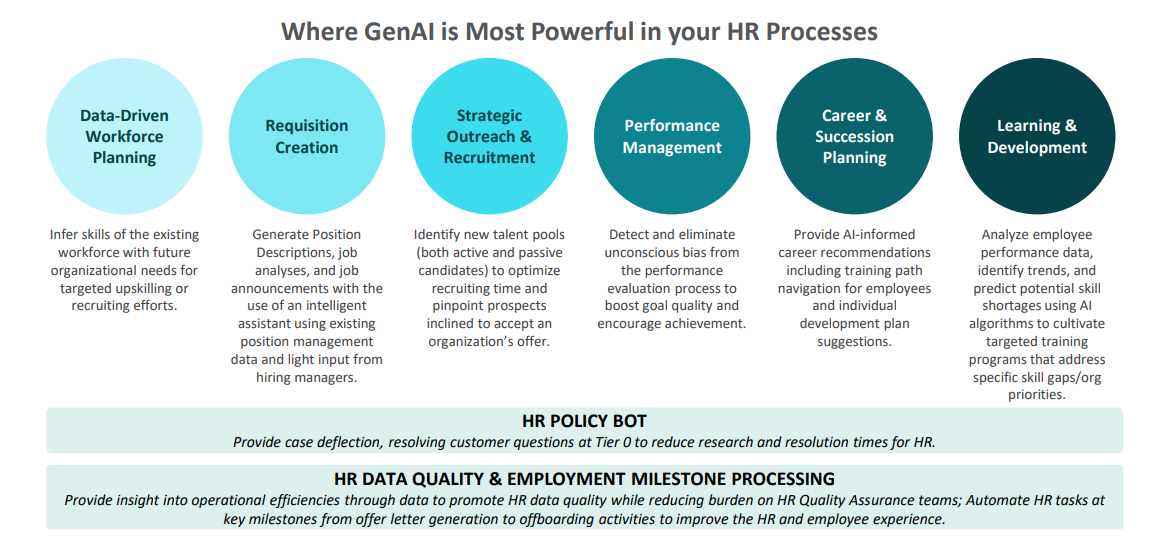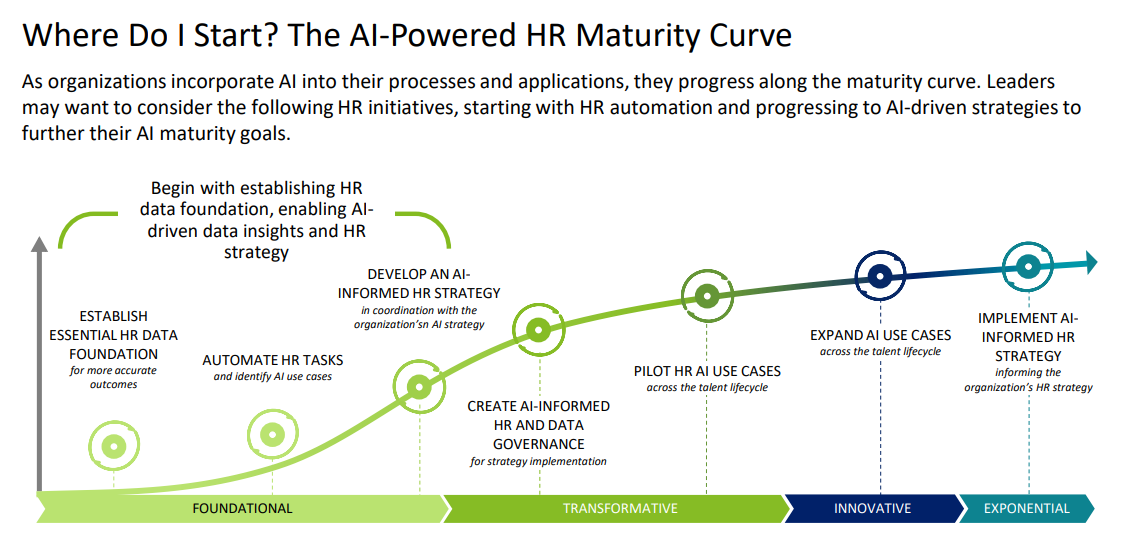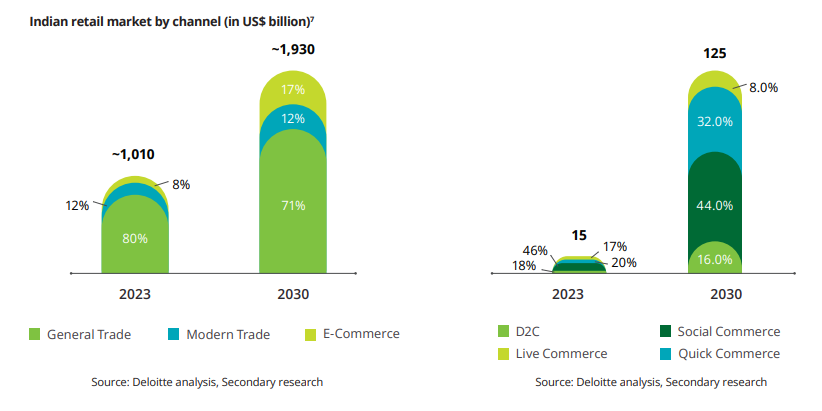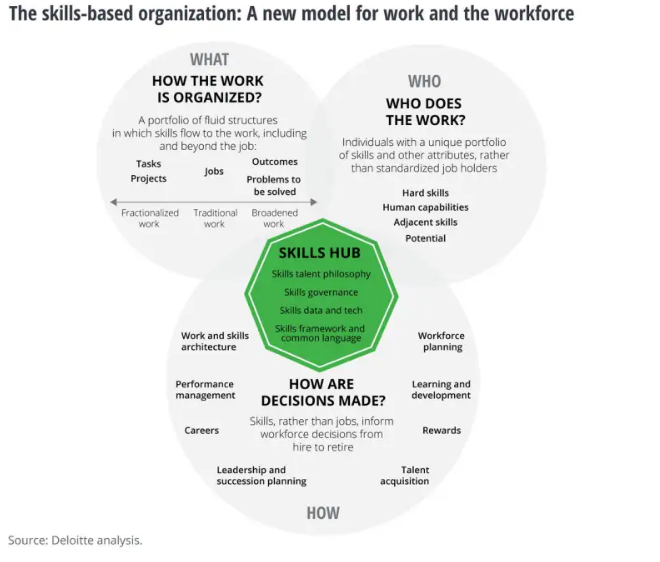Artificial intelligence (AI) and Human Resource (HR), two distinct philosophies yet intertwined in the modern context of business and workforce development. Both, through new advancements in the technology, have tremendous impact on the economy, particularly in high-growth industries such as healthcare and retail.
Let’s understand the role of AI and HR technologies in healthcare and retail.
Building Invincible Businesses with AI and HR
AI is revolutionizing healthcare and retail by improving diagnosis, tailoring treatment, streamlining processes, and forecasting patient results. AI’s ability to analyze massive amounts of medical data using advanced machine learning helps identify subtle patterns that humans often miss. This not only leads to earlier disease detection but also enables proactive patient care. As digital health tools become more common, AI’s integration into healthcare is expanding, resulting in better patient and public health outcomes.
AI is changing healthcare by offering more efficient, personalized, and innovative medical solutions. As AI continues to advance, its potential to revolutionize healthcare becomes increasingly evident. From improving clinical decision-making to transforming drug discovery, AI is poised to reshape the way healthcare is delivered. To fully understand AI’s impact, we must explore how it can enhance patient care, optimize healthcare systems, and address the challenges and ethical concerns that may arise.

Read HR Tech Blog: Top 40 HR Technology Terms You Must Be Aware Of
Ensuring Compliance And Security
In the healthcare industry, compliance and data security are important. Regulatory compliance specialists make sure that your AI systems meet critical global standards, and assist you avoid reputational damage and costly fines. Cybersecurity experts help to safeguard sensitive data, making sure to secure and compliant data exchange between platforms and devices. By outsourcing to various healthcare data security advisory and compliance, organizations can focus on core business functions, confident that your system meets the highest privacy, regulatory compliance, and security of privacy, security, and regulatory standards.
Accelerating Innovation
AI Integration Specialists can speed up your AI-driven healthcare initiatives by eliminating the lengthy process of assembling in-house teams. Healthcare Data Analysts are equipped to tackle integration challenges and guarantee quick deployment, allowing you to remain competitive in a rapidly evolving market. From real-time data analysis to tailored treatment plans, outsourcing enables you to innovate and deliver solutions to the market more swiftly.

How does digital health connectivity improve patient care?
Digital health connectivity enables smooth communication between patients and healthcare providers using a range of digital health technologies. This encompasses telemedicine platforms, electronic health records, and wearable devices that track health metrics in real time. Such connectivity supports timely interventions, tailored care, and greater patient engagement. Additionally, digital health solutions promote data sharing among healthcare professionals, which is essential for coordinated care and thorough diagnostics. The overall effect is a more responsive healthcare system that focuses on patient needs, improving their experience and outcomes.
AI And HR In Retail
Using AI in retail can significantly enhance the process of attracting and converting qualified talent. AI algorithms can suggest suitable roles to candidates based on their skills, preferences, and career aspirations, making the candidate experience smoother and showcasing both internal and external opportunities that fit each individual’s profile.

Create Personalized Journeys For Candidates
In the Retail industry, candidates wish to experience a seamless and customized journey, much like the experiences offered by platforms such as Amazon Prime or Hulu. They look for suggestions that reflect their past interactions and preferences.
To meet these changing expectations, Talent Acquisition teams in the Retail sector can utilize AI job matching to offer tailored role recommendations for each candidate, based on their current skills, relevant abilities, career goals, and preferences. By incorporating AI into your Careers Site, Retail organizations can craft unique talent journeys that connect with candidates.
Additionally, Preference Centers powered by AI allow candidates to choose how they want to communicate, all while making sure their data is managed properly.
Read HR Tech Blog: 15 Hybrid Work Examples: Organizations Embracing New Style
AI and HR Assist In Various Process
#1. Assists in Identify Better Candidates For Your organization
Employing artificial intelligence to screen potential employees for their skill sets may prove to be extremely useful in a high turnover. The introduction of AI to some extent streamlines the process as the only persons who are required to be selected are those who are most suited for a particular available job position. This becomes especially helpful when there is an upsurge in the number of jobs availed or job seekers, or rather when the Hiring Managers are required to hire very fast but still adequately informed.

One major advantage of implementing AI within the retail environment recruitment processes is its role in candidate-to-job roles and the skills possessed by the candidates factoring in the demands of the TA and the Hiring Managers. This helps the TA teams to prioritize the best candidates available in a quicker manner which is beneficial in terms of time. On top of that, AI brings assistive technology such as prescriptive analytics which provides the intermediate processes.
#2. Hit Diversity Targets
AI can revolutionize the organization and HR process by exposing potential employees who might have been overlooked by manual or conventional methods. With the help of algorithms, AI can assist in identifying specific skills required for multiple positions throughout the retail and healthcare workforce. It also helps predict the potential skills an employee could develop in the foreseeable future.
#3. Prioritize Filling The Difficult Roles
In the healthcare and retail industries, there are various reasons the role could be difficult to fill skills shortages. It also offers better starting wages at other competing retailers who don’t have the option to work remotely for frontline employees.
#4. Decreases Bias In Recruiting
Integration of AI in HR promotes fairness, transparency, and equity in the recruitment process that involves performance reviews based on their potential and skills. By using AI algorithms, one can uncover ideal candidates from both outsourced talent as well as from the organization’s internal talent pool. AI saves time and makes the process more efficient.
#5. Unlocks New Efficiencies
With the adoption of AI-powered technology, the HR teams in the retail sector can expedite the entire porches of hiring and saving cost as well as time. Busy retail recruiters can instantly gain accurate search results from their CRM, and not waste their valuable time by shortlisting the potential candidates.
Read HR Tech Blog: 10 Pros & Cons Of HRtech
#AI For Talent Retention
AI helps re-engage employees who are likely to leave the organization, boost retention, and assist HR teams fill the role faster. It also fosters a culture of development, learning, and recognition. This method does not have to be conventional or manual; AI can snatch power and make the process faster and smoother.
Through the use of AI in digital healthcare, several benefits can emerge in the form of better medical decisions, stronger patient involvement, and more efficient services to healthcare. But risks accompany benefits, such as concerns over data privacy and ethical matters in implementing precise yet transparent AI. These challenges have to be addressed as new digital tools emerge, allowing full use of AI in healthcare practices. This future success would ideally be crucially tied to tech companies collaborating with healthcare providers and government agencies.
To share your HR technology insights and announcements, please write to us at news@intentamplify.com



